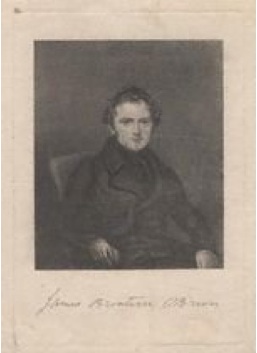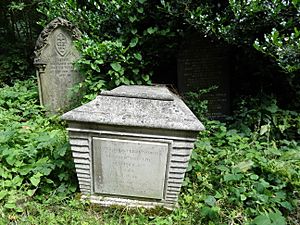James Bronterre O'Brien facts for kids
James Bronterre O'Brien (born 1805 – died 23 December 1864) was an important Irish leader, writer, and reformer. He played a big part in the Chartist movement in Britain. This movement worked to get more rights for ordinary people, especially the right to vote. O'Brien was known for his strong ideas about how society should be fair for everyone.
Early Life and Learning
James O'Brien was born in County Longford, Ireland, around 1804 or 1805. He went to a local church school first. One of his teachers saw how smart he was. This teacher helped him get into the special Lovell Edgeworth School.
In 1822, James went to Trinity College, Dublin. He was a very good student there and won many academic awards. He even won the Science Gold Medal! After studying law, O'Brien moved to England in 1829. He hoped to become a lawyer in London.
Becoming a Political Activist
In London, James O'Brien joined a group called the Radical Reform Association. Here, he met other important leaders. These leaders were fighting for universal suffrage, which means the right for all adults to vote. In 1836, he also joined the London Working Men's Association.
O'Brien started writing articles for a newspaper called Poor Man's Guardian. He used the pen name 'Bronterre' for his articles. Later, he liked the name so much that he made it his middle name. He worked closely with the newspaper's editor, Henry Hetherington. When Hetherington was put in prison, O'Brien took over as editor.
They also worked together on other newspapers. These papers were called "unstamped" because they didn't pay a special tax called "stamp duty." O'Brien and Hetherington believed that working people needed cheap newspapers. These papers would share important political information. In 1837, O'Brien started his own journal, Bronterre's National Reformer. He tried to avoid the stamp duty by making it more like a collection of essays, not just news.
O'Brien was very interested in the ideas of a French writer named Gracchus Babeuf. Babeuf had believed in a very equal society. O'Brien even started translating Babeuf's writings. He also began writing books about the French Revolution and English history. But in 1838, the authorities searched his house. They took his writings, and he couldn't finish his books.
In 1838, O'Brien supported a more active way to win the vote. This idea came from leaders like Feargus O'Connor. However, O'Brien did not believe in using violence to get the right to vote. He thought the Chartists should find a middle way. Some Chartists, like William Lovett, believed in peaceful petitions. Others, like O'Connor, talked about using force. O'Brien wanted a path between these two ideas.
After his own journal stopped, O'Brien wrote for O'Connor's newspaper, Northern Star. His articles helped make it a very popular newspaper. He also found time to publish his own paper, The Operative.
Challenges and Later Years
O'Brien stayed active in the Chartist movement. In 1840, he was arrested in Manchester. He was accused of making a "seditious speech," which meant speaking out against the government. He was found guilty and spent eighteen months in Lancaster Prison.
When O'Brien was released, he found it hard to work with Feargus O'Connor again. They disagreed on many things. One big disagreement was about using force. Another was about elections. O'Brien wanted Chartists to run as candidates in elections. O'Connor preferred to pressure the government in other ways. O'Brien helped Chartist candidates run against important government leaders.
O'Brien eventually left O'Connor's group. He joined the Complete Suffrage Union with other leaders. He kept publishing newspapers. In 1843, he and Henry Hetherington brought back the Poor Man's Guardian. Then, in 1844, he started the National Reformer. Sadly, these newspapers did not make enough money and stopped publishing by 1847.
After his newspapers closed, O'Brien wrote for other publications. He also gave public talks. In 1851, he opened the Eclectic Institute in London. This was a place where adults could take classes in subjects like English, French, science, and math.
By the 1850s, O'Brien became very poor, and his health suffered. He had a lung illness called bronchitis. His Chartist friends tried to raise money for him. They wanted to thank him for all his hard work. He had made many sacrifices to help people get the right to vote and to have a free press. But his health got so bad that he spent his last years in bed. James Bronterre O'Brien passed away on 23 December 1864. He is buried in Abney Park Cemetery.
 | Frances Mary Albrier |
 | Whitney Young |
 | Muhammad Ali |



